As temperatures drop to bone-chilling levels during winter and summers get hotter and more humid, the North Country of New York faces a unique set of challenges when it comes to heating and cooling homes and businesses. Traditional heating and cooling systems can be expensive to operate and maintain, while also contributing to environmental pollution. However, with advancements in technology, heat pump systems have emerged as a viable alternative that can provide efficient heating and cooling all year round.
Heating and cooling in the North Country, particularly in regions with harsh winters and extreme temperature variations, present several unique challenges. The North Country typically refers to northern regions of the United States, Canada, and other countries that experience cold climates. Let’s dive into some of the key challenges associated with heating and cooling in the North Country…

Climate Control Challenges
The North Country of New York is known for its harsh winters, with temperatures dropping below freezing for months on end. This means that homes and businesses in the area require reliable and efficient heating systems to keep residents and workers warm and comfortable. Traditional heating systems such as furnaces and boilers can be costly to operate and maintain, and may not be efficient enough to keep up with the cold weather.
In the summer months, temperatures can soar, and the high humidity can make it difficult to stay comfortable indoors. Traditional air conditioning systems can be expensive to operate, and they may not be able to cool larger spaces effectively.
- Extreme Cold Temperatures: North Country regions often endure long and frigid winters, with temperatures frequently dropping well below freezing. This extreme cold necessitates robust heating systems to maintain comfortable indoor temperatures, which can lead to increased energy consumption and heating costs.
- Heating System Efficiency: To combat the cold, residents rely heavily on heating systems, such as furnaces, boilers, and heat pumps. Ensuring the efficiency of these systems is crucial to manage energy expenses and reduce environmental impact.
- Insulation and Energy Efficiency: Proper insulation and energy-efficient building practices are essential in the North Country. Inadequate insulation can result in heat loss, drafts, and increased heating costs. Ensuring a well-insulated building envelope is a priority.
- Snow Accumulation and Roof Damage: Heavy snowfall is common in the North Country, and snow accumulation on roofs can lead to structural damage and ice dams. Effective snow removal and roof maintenance are essential to prevent these issues.
- Freezing Pipes: Extremely cold temperatures can cause water pipes to freeze and burst, leading to costly damage and water supply disruptions. Insulating pipes and taking preventive measures are necessary to avoid this problem.
- Maintenance and Repair Challenges: Heating systems, especially in remote areas, may require regular maintenance and prompt repair services. Finding qualified technicians during harsh winter conditions can be challenging.
- Energy Source Variability: In some North Country regions, access to consistent and affordable energy sources can be limited. Residents may need to explore alternative heating options or consider renewable energy sources like solar or wind power.
- Seasonal Variations: Transitioning from heating in the winter to cooling in the summer can pose challenges. Residents often need versatile HVAC systems that can efficiently handle both extremes.
- Environmental Considerations: Residents in the North Country are increasingly concerned about environmental sustainability. Balancing comfort with environmentally friendly heating and cooling solutions is an ongoing challenge.
- Cost Management: High heating and cooling costs can be a significant financial burden in the North Country. Residents must explore cost-effective solutions and consider government incentives for energy-efficient upgrades.
To address these challenges effectively, residents and businesses in the North Country must prioritize energy efficiency, invest in proper insulation, choose suitable heating and cooling systems, and stay vigilant in maintenance and winter preparation. Additionally, exploring renewable energy sources and leveraging technology for energy management can contribute to more sustainable and comfortable living conditions in these challenging climates.
Heat Pump Technology as an Alternative to traditional HVAC
Heat pump technology is an increasingly popular and environmentally friendly alternative to traditional HVAC (Heating, Ventilation, and Air Conditioning) systems for several compelling reasons. Unlike conventional systems that rely solely on energy consumption to generate heat or cool indoor spaces, heat pumps utilize a more energy-efficient and versatile approach by transferring heat from one location to another, making them an excellent choice for both heating and cooling needs.
One of the key advantages of heat pumps is their exceptional energy efficiency. Heat pumps are designed to operate on the principles of heat transfer, extracting warmth from the outside environment during the winter to heat indoor spaces and expelling heat from indoors to the outside during the summer to cool interiors. This process consumes significantly less energy compared to traditional HVAC systems that generate heat or cooling through combustion or resistance heating, resulting in lower utility bills and reduced environmental impact. By leveraging the latent heat present in the air, ground, or water sources, heat pumps can provide the same level of comfort while using less energy, making them an environmentally responsible choice.
Another notable benefit of heat pumps is their versatility. They can function both as heating and cooling systems, eliminating the need for separate equipment and reducing overall maintenance and installation costs. Additionally, heat pumps can be used year-round, ensuring comfortable indoor temperatures regardless of the season. This adaptability makes them an excellent choice for regions with varying climate conditions, providing consistent performance throughout the year. Furthermore, heat pumps often come with advanced features such as programmable thermostats, zoning capabilities, and variable-speed technology, allowing for precise temperature control and enhanced comfort. Overall, heat pump technology offers energy efficiency, versatility, and enhanced comfort, making it a compelling alternative to traditional HVAC systems for homeowners and businesses alike.
People in the North Country of New York choose heat pumps for heating and cooling for several reasons:
- Energy Efficiency: Heat pumps are highly energy-efficient, as they transfer heat from one area to another rather than generating heat. They require less energy to operate, resulting in lower utility bills and reduced energy consumption.
- Versatility: Heat pumps can provide both heating and cooling, making them a versatile solution for year-round comfort. They can provide efficient heating during the winter and effective cooling during the summer.
- Environmentally Friendly: Heat pumps are environmentally friendly, as they don’t use fossil fuels to operate. They can reduce carbon emissions and help to combat climate change.
- Cost Savings: Heat pumps can provide cost savings over traditional heating and cooling systems. Although they may require a higher initial investment, they can save money on energy bills and maintenance costs in the long run.
- Comfort: Heat pumps provide consistent, even heating and cooling throughout the space, resulting in increased comfort for residents and workers.
Overall, people in the North Country of New York choose heat pumps for their efficiency, versatility, environmental benefits, cost savings, and comfort. Adirondack Heat Pumps offers a range of heat pump systems that are designed to meet the unique needs of the North Country, with free quotes, rebates, tax credits, and finance options available.
Traditional Vs Alternative
In summary, addressing heating and cooling challenges in the North Country, known for its harsh winters and extreme climate, requires a multifaceted approach. Residents and businesses must prioritize energy efficiency, invest in proper insulation, and explore alternative heating and cooling solutions to combat the challenges posed by the cold weather and extreme temperatures. Proactive maintenance, careful planning, and environmental considerations are essential in achieving sustainable and comfortable indoor environments in these demanding climates.
When it comes to choosing heating and cooling systems, heat pump technology emerges as an excellent alternative to conventional HVAC systems. Heat pumps offer exceptional energy efficiency by harnessing heat transfer principles, reducing energy consumption, and subsequently lowering utility costs. Their versatility as both heating and cooling systems eliminates the need for separate equipment, making them a cost-effective and space-saving solution. Furthermore, heat pumps provide consistent comfort throughout the year, adapting seamlessly to changing seasons and climates.
Incorporating heat pump technology into North Country homes and businesses not only addresses the unique challenges of extreme weather but also aligns with the growing emphasis on environmentally responsible practices. By embracing this innovative approach, residents can enjoy reliable heating and cooling, reduce energy expenses, and contribute to a more sustainable future. Heat pumps offer a compelling solution that combines comfort, efficiency, and environmental responsibility, making them an ideal choice for those seeking effective climate control in challenging North Country conditions.
Contact Adirondack Heat Pumps for a Free Quote
Adirondack Heat Pumps is a local company that specializes in heat pump technology. They offer a range of systems that are designed to meet the unique heating and cooling needs of the North Country. They offer free quotes to potential customers, allowing them to explore the available options and determine the most suitable system for their needs.
Adirondack Heat Pumps also offers a range of rebates and tax credits that can help to offset the initial cost of installing a heat pump system. They can also provide financing options to make the investment more affordable for those on a budget.

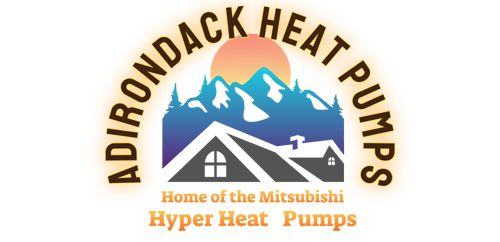
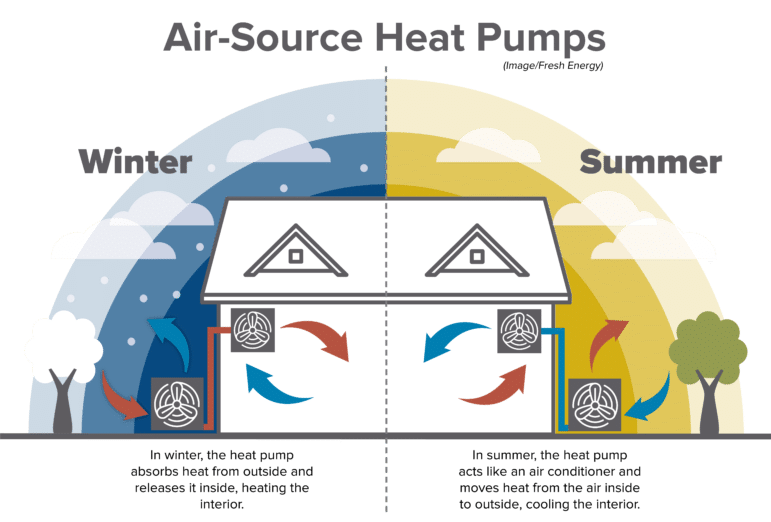
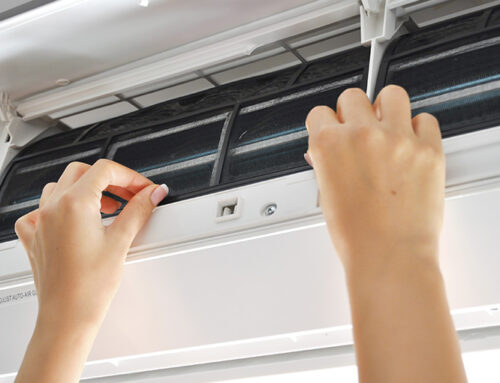

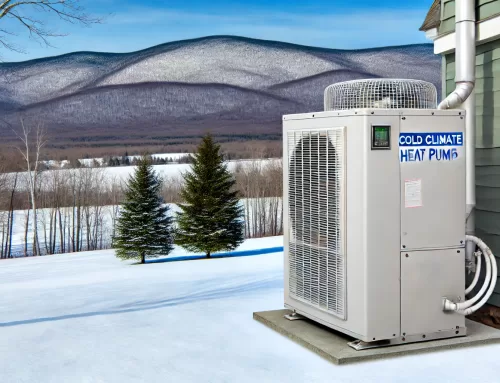
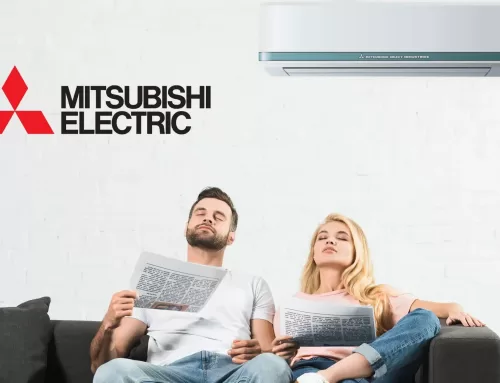
Leave A Comment